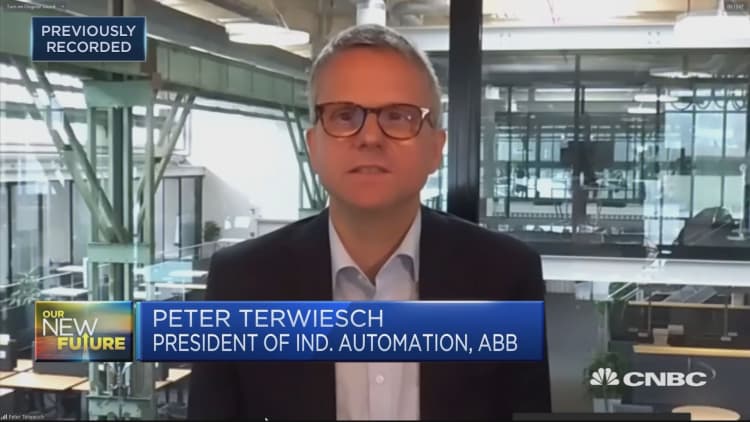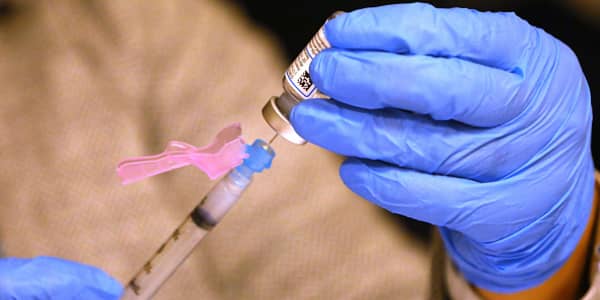
LONDON — Much of the data produced by industrial companies remains unused, according to a senior executive at Swiss engineering firm ABB.
Peter Terwiesch, president of ABB's industrial automation business, said that "at least" 80% of data generated is not being utilized by companies.
"What it takes is basically getting the data organized, because very often the data is in very diverse systems, often legacy systems, very different formats, not all of it ready for immediate consumption," he told CNBC's "Squawk Box Europe" on Monday.
"You have to contextualize the data before then combining it with smart algorithms, with industrial analytics, with AI (artificial intelligence), to yield significant productivity potentials. And there's estimates, depending on the sector, of anywhere between 30 even 40% productivity gains that are hidden in that unused data."
During the coronavirus pandemic, demand for ABB's remotely-delivered services grew, he stated. In October, the company launched its "Adaptive Execution" product that uses virtualization to reduce the engineering time spent on site, which Terwiesch said would help lower costs in a statement at the time.
"When you can't get what you want, you have to get better at using what you have. So if you can't get people to site … when you can't deliver additional equipment in terms of augmenting your capacity, you have to get better at using what you have, which is your data, which is remote connectivity," he told CNBC.
Terwiesch also said there is "strong momentum" in Europe, the U.S. and Asia towards electrification, automation and digitalization, but some parts of the world are ahead. Discrete manufacturing — producing finished items such as smartphones or toys — is an area that stands out, he added.
"In some sectors, for instance if you look at discrete manufacturing, the density of industrial robots varies quite greatly by nation and Singapore or Japan or South Korea, but also Germany as an example, they're all fairly highly automated in discrete manufacturing, this is probably an area where the United States has room to close a gap," Terwiesch stated.





